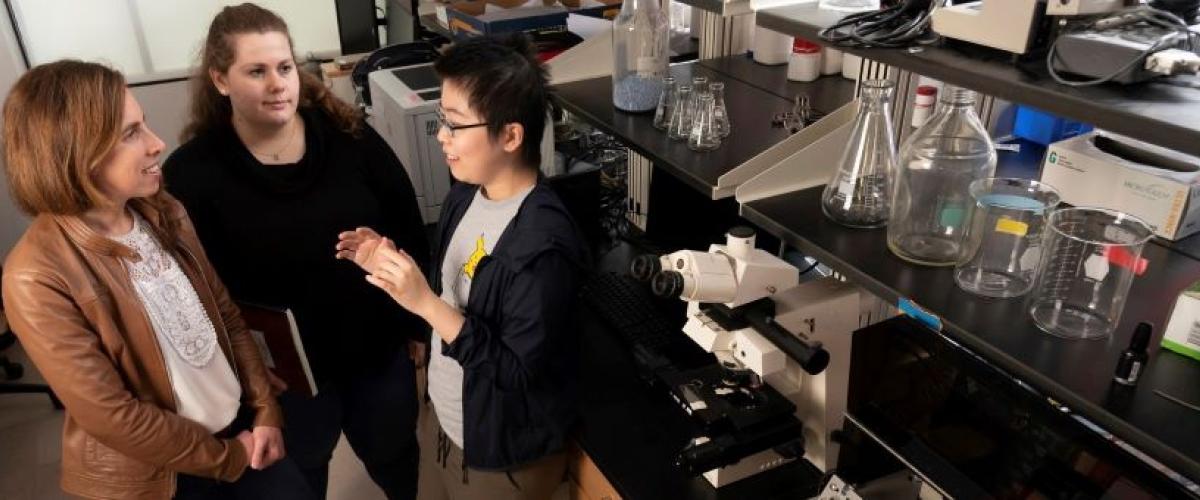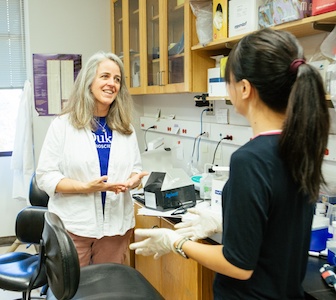
Mission Statement
The goal the Neurobiology Training Program is to provide the highly interdisciplinary training needed to create leading young neuroscientists who will forge mechanistic insights into the workings of the brain in health and disease.
Our Values
We explore relationships among molecular and cellular mechanisms, circuit operations and behavior to shed light on normal brain operations and develop new strategies to diagnose, treat and cure brain disorders. Both in and out of the lab, we train and support our community members to help them achieve their goals, we model responsible conduct of research, and we command the highest level of professionalism, inclusion, creativity, open-mindedness and compassion.
Our Community
We are a collaborative community with interlocking groups that work to promote an understanding of how the brain operates in health and disease.
Centers and Institutes
Duke Neurobiology features a wide range of faculty, centers and research institutes that contribute to the overarching mission of the neuroscience community at the University. Faculty, staff, students and postdocs collaborate across departments to conduct key research at these institutes and centers.
Affiliated Centers and Institutes
Research and Training
Duke Neurobiology provides many opportunities for research and training. Over 180 faculty conduct research on the brain, and almost 50 faculty participate in the Neurobiology Graduate Training Program. Fourteen faculty are members of the Systems and Integrative Neuroscience Program, and nine are in the Cognition and Cognitive Neuroscience Program in the Department of Psychology and Neuroscience.